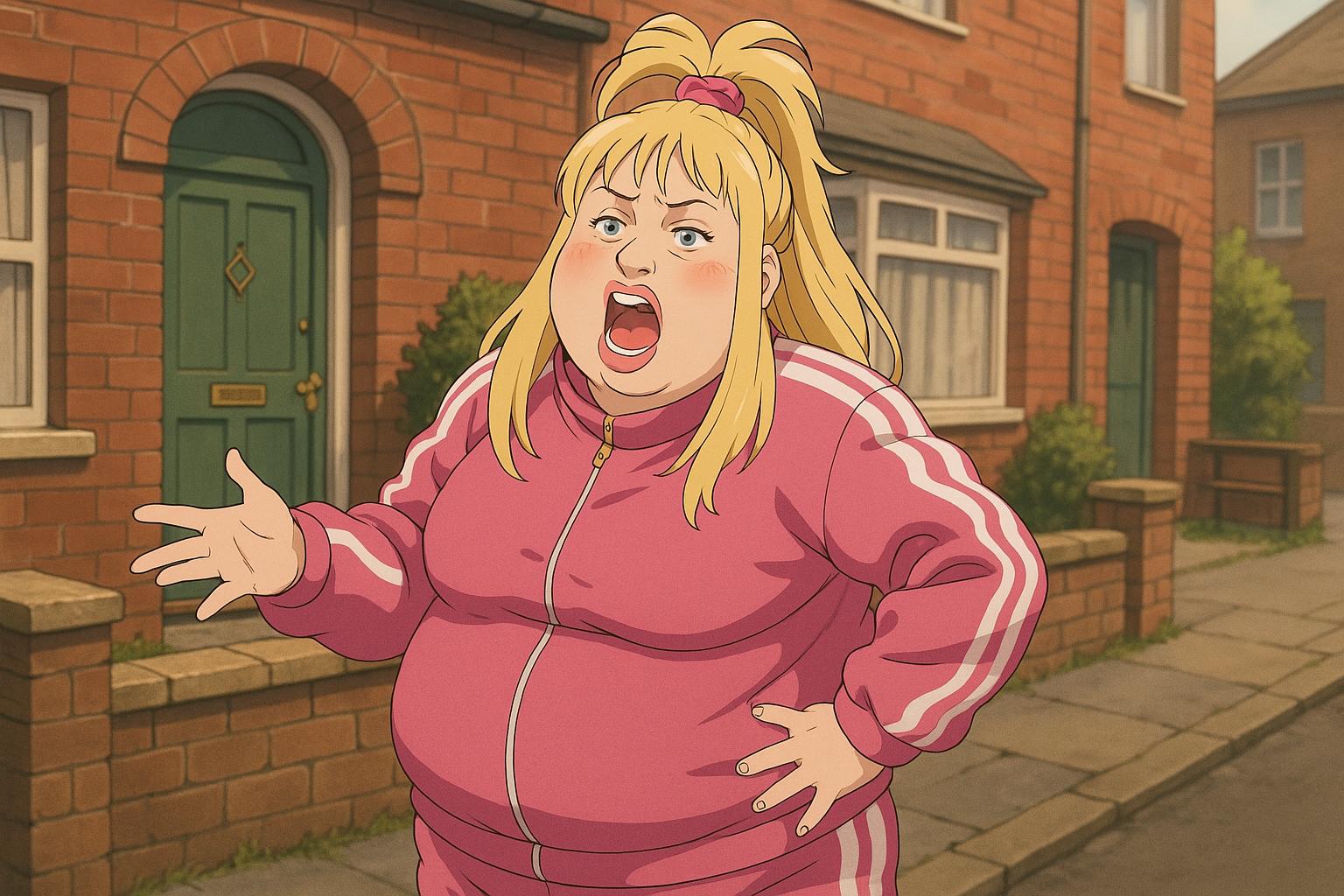Growing up in a household where classic British sitcoms like Only Fools and Horses and Fawlty Towers were staple viewing, it seems almost surreal that Little Britain slipped under my radar. Despite its significant presence in the early 2000s as a cultural touchstone, it wasn’t until recently that I decided to explore this comedic phenomenon. With a blend of anticipation and caution, I approached the series to gauge its relevance and comedic value through a contemporary lens.
Its characters, especially Vicky Pollard, are lodged firmly in the annals of British cultural history. From her iconic tracksuits to her chaotic monologues, the character, masterfully portrayed by Matt Lucas, evokes both nostalgia and curiosity. The sketch where Vicky rambles through a monologue in response to a teacher's question about coursework captures that quintessential British humour, blending absurdity with an uncanny familiarity that many may find both shocking and funny.
However, the show's humour can veer into uncomfortable territory, exemplified in the portrayal of Emily Howard, played by David Walliams. The character’s insistence on “being a lady” while perpetuating outdated stereotypes raises questions about identity and representation. While it might have elicited laughter during its original airing, today’s viewers may perceive it as insensitive or misguided, revealing how societal values have evolved over the past couple of decades.
The dynamic between Lucas and Walliams is striking, particularly in sketches featuring Andy and Lou, where the nuances of their performances showcase the duo's comedic chemistry and outstanding range. This seamless character-switching is reminiscent of classic British comedy, yet the context has changed significantly. What once seemed harmless can now be scrutinised through a more sensitive lens.
One notable sketch tackled the portrayal of a typical British school environment with striking caricatures that reflect societal stereotypes. The scene had me laughing at the exaggerated antics of private school students, which encapsulate both absurdity and nostalgia. Yet, it was in the shadows of such light-heartedness that the show also presented lines which felt startlingly outdated, like the assertion about gender that sparked internal squirming. Watching this unfold in 2025, it was a reminder of the significant changes in our understanding of gender norms, prompting reflections on whether such content still holds humour or simply feels tone-deaf.
The backlash against Little Britain is well documented. Following the Black Lives Matter movement, both creators issued public apologies for past portrayals that were offensive, notably the controversial use of blackface that featured prominently in the series. This apology marked a significant turning point, aligning the show’s previous content with today’s ethos of inclusivity and respect in representation.
In this context, it is essential to consider how comedy functions as a mirror to society. The BBC's decision to remove certain episodes from streaming platforms reflects an acknowledgment of shifting societal attitudes. This sentiment was echoed in Ofcom's recent audience research, which deemed some sketches as explicitly racist and outdated, and their poignancy in today’s landscape is hard to deny.
Yet, amid all the discomfort, certain sketches managed to pierce through with genuine charm and humour. The "Uncle Albert Hall" sketch stood out with its subtle delivery, and other moments showcased delightful physical comedy that resonated more closely with the classical traditions that define British humour.
Nevertheless, the inclusion of body image jokes through Marjorie Dawes, a character emblematic of the "Karen" stereotype, serves as a double-edged sword. On one hand, it can be amusing due to her cluelessness, but on the other, the humour feels stale in an age prioritising body positivity and acceptance. The juxtaposition of laugh-out-loud moments against cringe-worthy lines paints a layered picture of the show's legacy.
Overall, revisiting Little Britain today reveals a complex tapestry of the British comedic landscape, marked by moments of brilliance intertwined with insensitivity that is difficult to ignore. It's not merely about seeking offense; rather, it’s a recognition of how comedy reflects, challenges, and sometimes perpetuates cultural frameworks. Watching this show now becomes a fascinating exploration of not just humour, but how far the conversations surrounding race, gender, and body image have progressed since it first aired.
At its core, Little Britain is a perplexing legacy of British entertainment; while some sketches still resonate as amusing and clever, others serve as stark reminders of a society that has evolved significantly, and not always in tandem with its media portrayals. With all its complexities, the series remains a point of contention and contemplation—certainly not boring, and undoubtedly reflective of how far we've come.
Reference Map
- Paragraphs 1, 2, 3, 5, 6, 7, 9, 10
- Paragraphs 4, 8
- Paragraphs 4, 8
- Paragraphs 5, 6
- Paragraphs 1, 4, 10
- Paragraphs 4, 5
- Paragraphs 4, 5
Source: Noah Wire Services
